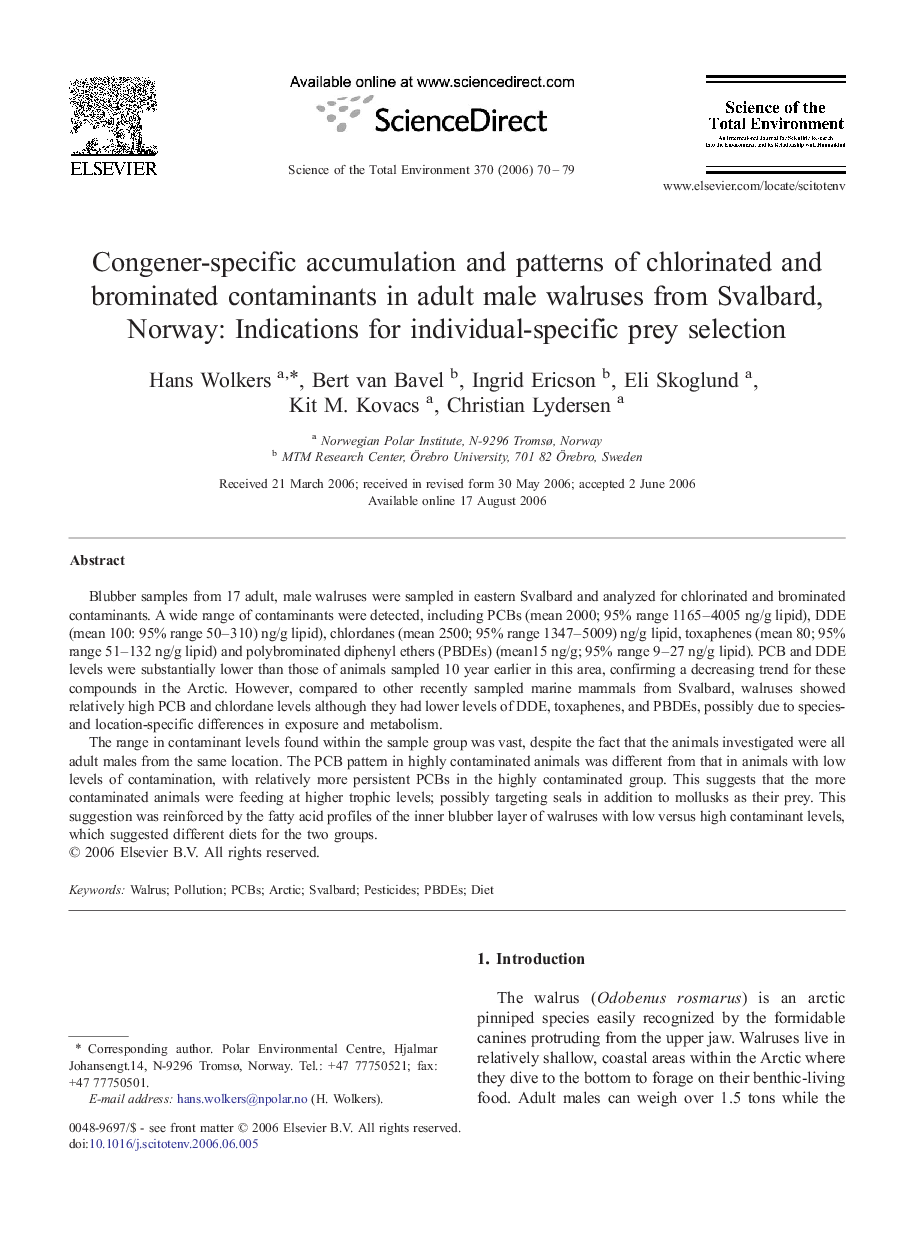| کد مقاله | کد نشریه | سال انتشار | مقاله انگلیسی | نسخه تمام متن |
|---|---|---|---|---|
| 4433786 | 1619965 | 2006 | 10 صفحه PDF | دانلود رایگان |

Blubber samples from 17 adult, male walruses were sampled in eastern Svalbard and analyzed for chlorinated and brominated contaminants. A wide range of contaminants were detected, including PCBs (mean 2000; 95% range 1165–4005 ng/g lipid), DDE (mean 100: 95% range 50–310) ng/g lipid), chlordanes (mean 2500; 95% range 1347–5009) ng/g lipid, toxaphenes (mean 80; 95% range 51–132 ng/g lipid) and polybrominated diphenyl ethers (PBDEs) (mean15 ng/g; 95% range 9–27 ng/g lipid). PCB and DDE levels were substantially lower than those of animals sampled 10 year earlier in this area, confirming a decreasing trend for these compounds in the Arctic. However, compared to other recently sampled marine mammals from Svalbard, walruses showed relatively high PCB and chlordane levels although they had lower levels of DDE, toxaphenes, and PBDEs, possibly due to species- and location-specific differences in exposure and metabolism.The range in contaminant levels found within the sample group was vast, despite the fact that the animals investigated were all adult males from the same location. The PCB pattern in highly contaminated animals was different from that in animals with low levels of contamination, with relatively more persistent PCBs in the highly contaminated group. This suggests that the more contaminated animals were feeding at higher trophic levels; possibly targeting seals in addition to mollusks as their prey. This suggestion was reinforced by the fatty acid profiles of the inner blubber layer of walruses with low versus high contaminant levels, which suggested different diets for the two groups.
Journal: Science of The Total Environment - Volume 370, Issue 1, 15 October 2006, Pages 70–79